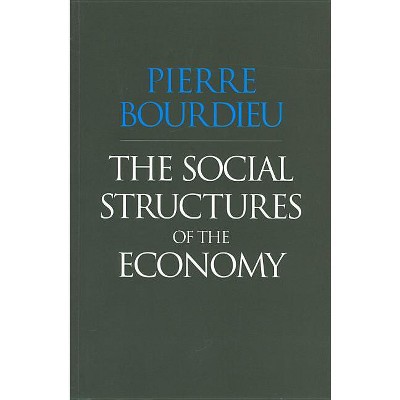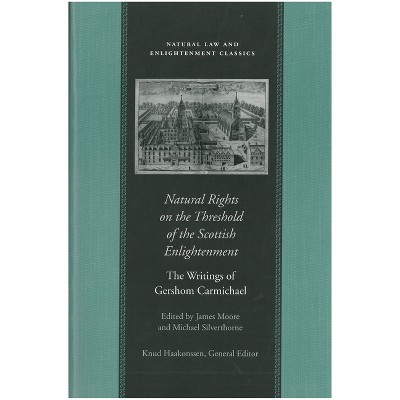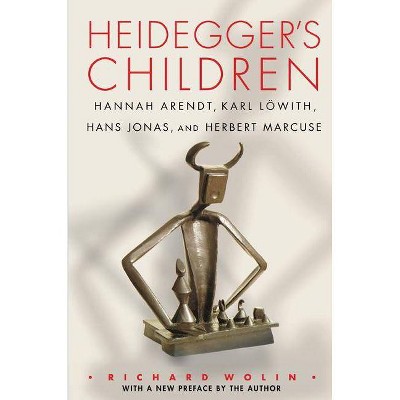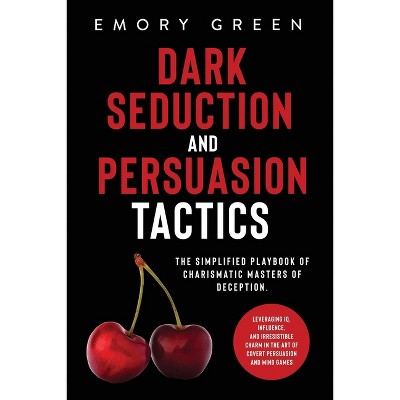Sponsored

The Seduction of Unreason - 2nd Edition by Richard Wolin (Paperback)
In Stock
Sponsored
About this item
Highlights
- Ever since the shocking revelations of the fascist ties of Martin Heidegger and Paul de Man, postmodernism has been haunted by the specter of a compromised past.
- About the Author: Richard Wolin is Distinguished Professor of History and Comparative Literature at the Graduate Center of the City University of New York.
- 424 Pages
- Political Science, Political Ideologies
Description
Book Synopsis
Ever since the shocking revelations of the fascist ties of Martin Heidegger and Paul de Man, postmodernism has been haunted by the specter of a compromised past. In this intellectual genealogy of the postmodern spirit, Richard Wolin shows that postmodernism's infatuation with fascism has been extensive and widespread. He questions postmodernism's claim to have inherited the mantle of the Left, suggesting instead that it has long been enamored with the opposite end of the political spectrum. Wolin reveals how, during in the 1930s, C. G. Jung, Hans-Georg Gadamer, Georges Bataille, and Maurice Blanchot were seduced by fascism's promise of political regeneration and how this misapprehension affected the intellectual core of their work. The result is a compelling and unsettling reinterpretation of the history of modern thought. In a new preface, Wolin revisits this illiberal intellectual lineage in light of the contemporary resurgence of political authoritarianism.From the Back Cover
"Richard Wolin's superb book is urgent reading for those who would toss the Enlightenment out with Descartes. In this tour d'horizon, as deep as it iswide, Wolin refuses to be impressed by the glamour of extremity. He shines light into many dark corners where intellectual fraud, self-deception, and hauteur passed for liberty during a murderous century. Talk about genealogy! Unreason will never be the same."--Todd Gitlin, Columbia University, author of The Twilight of Common Dreams
"Richard Wolin demonstrates conclusively that contempt for liberalism and parliamentary government, whether it comes from the right or the left, whether it is anti-modern or postmodern, is very bad politics. His learned and provocative 'genealogy' of contemporary anti-Americanism should cause deep anxiety among its intellectual purveyors in Europe and here at hometoo."--Michael Walzer, Institute for Advanced Study
"I recommend this powerful critique with great enthusiasm. It is that infrequent book that is of enduring scholarly significance while deserving of a broad readership outside the academy. It also offers American readers insights into French and German mentalities at a time of transatlantic irritations."--Jeffrey Herf, University of Maryland
"This is a wide-ranging and hard-hitting critique of postmodern thinking--especially of its political limitations and failures--based on broad reading and straight thinking. The author adds relevance to his critique of thinkers by juxtaposing those thinkers with interesting accounts of contemporary European politics."--Jerrold Seigel, New York University
Review Quotes
"[A] lively, learned, and wide-ranging work."--Choice
"[A] superb book. . . . In this tour d'horizon, as deep as it is wide, Wolin refuses to be impressed by the glamour of extremity. He shines light into many dark corners where intellectual fraud, self-deception, and hauteur passed for liberty during a murderous century. Talk about genealogy! Unreason will never be the same."--Todd Gitlin, Columbia University
"Absolutely entrancing. . . . [A] wide-ranging yet subtle consideration of the intellectual's abiding fascination with absolutism. . . . [A] perceptive, compelling and invaluable document."--John Banville, Irish Times
"An indispensable book. . . . [A]nother important installment in what has become one of the major intellectual enterprises of our time: Richard Wolin's principled defense of liberalism against its most sophisticated enemies."--Adam Kirsch, New York Sun
About the Author
Richard Wolin is Distinguished Professor of History and Comparative Literature at the Graduate Center of the City University of New York. His books include The Wind From the East and Heidegger's Children (both Princeton).
















